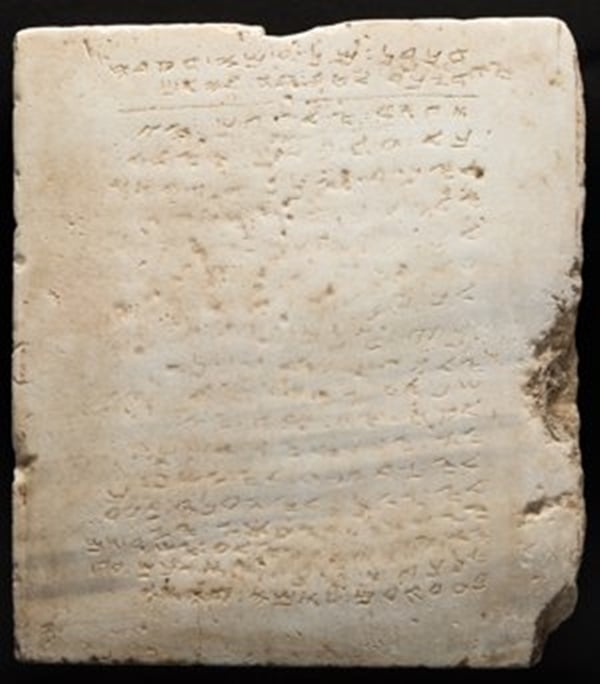
On November 16 in Beverly Hills, Heritage Auctions will offer the world’s earliest known stone inscription of the Ten Commandments—described as “one of the most important documents in history and a national treasure of Israel”—as part of a larger sale of works from the Living Torah Museum, a Brooklyn-based institution.
The tablet has an opening bid of $250,000.
Interested bidders are required to place the object on public exhibition per a term stipulated by the Israel Antiquities Authority (IAA), according to a statement from the auction house. The slab of white marble weighs about 200 pounds and is chiseled with 20 lines of letters in Samaritan script, derived from both Hebrew and Aramaic. It lists nine of the ten Biblical commandments from the Book of Exodus.
It is believed that the slab adorned the entrance of a synagogue that was destroyed by the Romans between 400 and 600 AD, or by the Crusaders in the 11th century, said David Michaels, director of antiquities for the auction house.
“There is nothing more fundamental to our shared heritage than the 10 Commandments,” said Michaels, adding that the auctioneer is “honored and privileged to be entrusted with the sale of this remarkable piece of Biblical history.”
According to Heritage, while Dead Sea Scrolls dated to the 1st century B.C. contain written examples of the Ten Commandments on parchment and papyrus, the earliest stone inscriptions of the Biblical law code are found in the so-called ancient “Samaritan Decalogues”, of which there are four known examples (including this one).
The remaining examples are fragments, and are now in museum collections or at protected sites in the Middle East. “The Living Torah example is among the earliest of these Decalogues, and certainly the most complete,” Michaels noted. “It is also the only example that can be legally obtained for private ownership.”